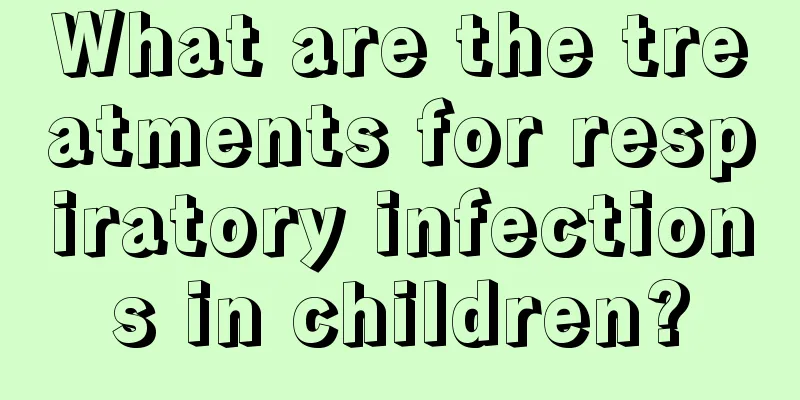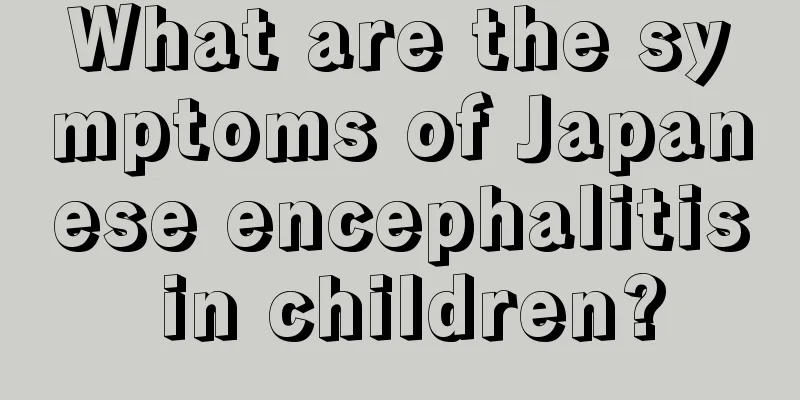Is it serious if a child has a nose bleed? How to treat it?

|
In the summer, people always have nose bleeding due to various reasons, especially children who are more prone to it because of their poor resistance. Parents must pay attention to nose bleeding and take immediate measures, otherwise it will cause more serious complications. And after stopping the bleeding, it cannot be taken lightly. It is best to take your child to the hospital for a detailed physical examination, so that you can clearly know the specific cause of the disease, and then prescribe the right medicine according to the cause to prevent your child from happening again in the future. In fact, many times it is caused by heatstroke, so parents should pay more attention to their children's health when the weather is hot. Treatment principles: 1. Apply cold compress. If a small amount of blood is dripping, parents can use ice bags or wet towels to cool the forehead and neck, or rinse the mouth with cold or ice water to constrict blood vessels and reduce bleeding. 2. Press the nose wings. The specific operation is that parents use their thumb and index finger to pinch the nostrils on both sides for about 10 to 20 minutes (if you are sure which nostril is bleeding, you can directly press the bleeding nostril). Many parents first think of using paper towels to block the bleeding. In fact, the pressure of paper towels is usually not enough to stop the bleeding. Moreover, paper towels are not sterilized and can easily induce infection. While compressing the nostrils, sit down with your head slightly tilted forward and downward so that you can spit out the blood in your mouth. Instead of asking their children to hold their heads up like many parents do. Because when the child raises his head, the blood will be swallowed involuntarily, which will irritate the gastrointestinal tract and cause nausea, vomiting, etc. Especially when the amount of bleeding is large, aspiration may occur. 3. Send to hospital promptly. If the nose bleeding cannot be stopped after taking the above measures, or the child is bleeding heavily and is accompanied by pale face, cold sweats, rapid heart rate, etc., the child should be sent to the hospital immediately. In addition, if the child has recurrent nosebleeds, he or she should also go to the hospital for examination to see if there is rhinitis, foreign body in the nasal cavity, nasal and nasopharyngeal tumors or blood disease. 4. Pay attention to your diet. During nosebleed, do not eat hot food or hot drinks. You should eat some warm food rich in protein, vitamins and iron, such as honey water, rice juice, milk, juice, etc., or eat some semi-liquid food, such as porridge, noodles, etc. Avoid tobacco, alcohol, spicy and hard foods, and eat more fresh vegetables and fruits. |
<<: What causes children to keep coughing?
>>: What are the tips for taking medicine for children's cold and fever
Recommend
Why does my baby keep waking up at night?
It is normal for children to wake up at night and...
What is the cause of dry stool in children?
We all know about adult constipation, but we don’...
Can vitiligo in children be treated?
Vitiligo is actually what we call vitiligo in lif...
Why do newborn baby's nails turn black?
The baby's health is the biggest concern of t...
How to wean your baby off breast milk
As your baby grows, you can wean him/her off brea...
Does it hurt when a child has a tooth filled?
Children like to eat sweets. If they are not rest...
What to do if baby has ear eczema and yellow discharge
It is quite common for children to have eczema, w...
What causes children to drool and have a runny nose?
In fact, many parents will find that their childr...
Baby's nose bleeds in the middle of the night
If your baby has a nose bleed in the middle of th...
What to eat for children with indigestion
Children's physical health is a very importan...
What to drink milk for 2-year-old baby
Many parents don't know much about their babi...
A child's white blood cell count is 160,000
We all know that there are white blood cells in t...
What to do if your child is distracted in class
Inattention is not a problem exclusive to childre...
How to educate a child who curses?
Children are not only very curious, but also have...
What should I do if my nine-month-old baby has a fever and diarrhea?
Many infants or newborns under one year old will ...









